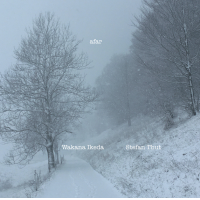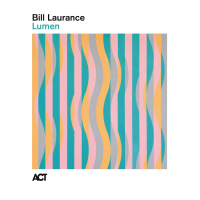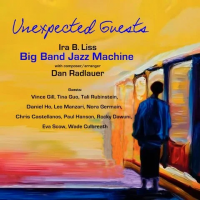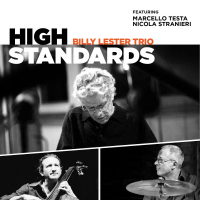Home » Jazz Articles » Multiple Reviews » Two on Ftarri
Two on Ftarri
 Wakana Ikeda / Stefan Thut
Wakana Ikeda / Stefan Thut Afar
Ftarri
2021
Prior to recording Afar, Swiss cellist Stefan Thut and Tokyo-based flautist Wakana Ikeda were not strangers. When Wakana Ikeda, violist Yoko Ikeda, Taku Sugimoto— the guitarist with whom Thut recorded a previous Ftarri album in 2015, as well as the album Atama (Zoomin' Night, 2020)—and vocalist Minami Saeki were touring Europe in autumn 2017, in Thut's home town Solothurn, they had made a sextet recording with Thut and Swiss composer Manfred Werner, comprising five compositions, one each from Wakana, Yoko, Sugimoto, Thut, and Werner; the album was issued as Sextet (Meerra, 2018).
In autumn 2019, Thut performed a number of concerts in Japan. One of those was at Nanahari in Tokyo, on October 3rd, in a duo with Wakana Ikeda. Afar's only track, "Afar," was recorded live at that concert; the thirty-five-minute performance is of the title piece which was composed by Thut in 2019. He says of it, "The notes forming the 72 fragments of the score "afar" are transcribed from the motet "O padua, sidus praeclarum" by Johannes Ciconia (c. 1370-1412). As opposed to copying an entire work, I cut out all of the syllabic content, word for word, leaving aside the long melismatic trails..."
In practice, it seems unlikely that many listeners would mention the name Johannes Ciconia if they were presented with "Afar" in a blindfold test. Instead, the word this composition would bring to many lips would be "Wandelweiser," the organisation of which Thut is a stalwart member. The composition has plenty of silences, perhaps where content was omitted from the original composition, thus focussing more on the notes that are played. Frequently, notes from the cello and flute overlap, but they never mask one another or get in each other's way. Instead, in when they play and in what they play, the two complement one another throughout. As with some Magnus Granberg compositions, although "Afar" is rooted in an older composition, it never sounds copied or derivative. Instead, it stands in its own right as music which is beautiful and enthralling, time after time...
 Toshimaru Nakamura / Tetuzi Akiyama
Toshimaru Nakamura / Tetuzi Akiyama Idiomatic Expressionism
Ftarri
2021
Dating at least as far back as 1998 when Toshimaru Nakamura and Tetuzi Akiyama (along with guitarist, cellist and composer Taku Sugimoto) began organising monthly concerts in Tokyo, entitled "The Improvisation Meeting at Bar Aoyama" (later "Meeting at Off Site"), Nakamura and Akiyama have been associated with one another and with the music known as electro-acoustic improvisation (eai) or, in Japan, onkyo. Landmark recordings by them have included The Improvisation Meeting at Bar Aoyama (Reset, 1999) credited to the threesome, and Meeting at Off Site Vol. 1 (IMJ, 2001) by the Nakamura/Akiyama duo.
Although others have followed in his footsteps, there was a time when Nakamura was the only player who was credited with playing "no-input mixing board"; nowadays, on YouTube one can watch a simplified tutorial on how to play it (not given by Nakamura, incidentally). In stark contrast to the panoply of electronic sounds which emanate from Nakamura's instrument, the single notes picked out on Akiyama's acoustic guitar sound decidedly conventional. Of course, such juxtapositions and contrasts lay at the heart of much electro-acoustic improvisation, hence its name.
On the album's five tracks, ranging from just under four minutes to just under nine, thirty-four minutes in total, Nakamura and Akiyama conduct a very controlled back-and-forth musical conversation, with one sending out a phrase which is answered by the other and so on. As a vehicle for the two players to demonstrate what they are capable of, without getting in each other's way, it works effectively and makes engaging listening.
Around the turn of the millenium, when eai/onkyo was becoming established, it still sounded alien to some ears and not everyone was a fan, with some voicing their opposition to it. With that in mind, it is very enlightening to listen to Idiomatic Expressionism—great title, eh? So commonplace and integrated have eai sounds become that it is hard to imagine anyone badmouthing it today. That alone speaks volumes about the effect that these two musicians and their associates have had on the music we hear or listen to. Bravo.
Tracks and Personnel
AfarTracks: Afar (2019).
Personnel: Wakana Ikeda: flute; Stefan Thut: cello.
Idiomatic Expressionism
Tracks: IE.1; IE.2; IE.3; IE.4; IE.5.
Personnel: Toshimaru Nakamura: no-input mixing board; Tetuzi Akiyama: acoustic guitar.
Tags
Comments
PREVIOUS / NEXT
Support All About Jazz
 All About Jazz has been a pillar of jazz since 1995, championing it as an art form and, more importantly, supporting the musicians who make it. Our enduring commitment has made "AAJ" one of the most culturally important websites of its kind, read by hundreds of thousands of fans, musicians and industry figures every month.
All About Jazz has been a pillar of jazz since 1995, championing it as an art form and, more importantly, supporting the musicians who make it. Our enduring commitment has made "AAJ" one of the most culturally important websites of its kind, read by hundreds of thousands of fans, musicians and industry figures every month.







 Buy Now
Buy Now

















